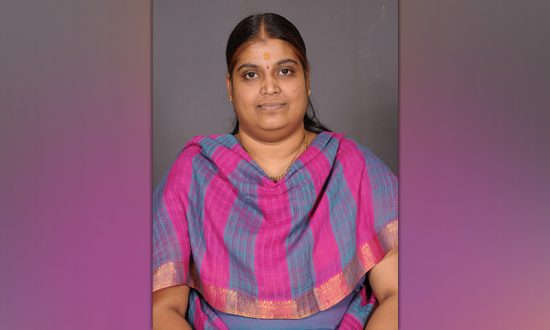Neelima Chaudhary is presently working as HOD, Department of Commerce, JAIN (Deemed to be University) Bangalore. Her area of specialization is Management and Finance. With more than 20 years of academic experience, she contributes extensively towards academic excellence and has published research papers in national and international journals. She has been a part of organizing committees of national and international conferences and also the internal member of the Board of Studies.
Appearing for a board exam, be it CBSE, ICSE or State Board can be quite stressful for any student. Particularly for class 10 students, for whom the board exams are their first major step. Though the exam needs to be taken there is nothing to be stressed about. The format is the same as other exams, the only difference is that the answer sheets will be checked by external examiners.
After class, selecting the right stream of studies is the most crucial step for a student. The entire future of a student depends on this particular decision. This is why one should carefully research and find out the topic of interest rather than simply following the crowd. Here are some key things to remember before choosing a particular stream of education.
- Identify Your Calling: Begin with distinguishing your interests, understanding your aptitude, skills, and scope for the chosen stream. It is necessary to give adequate attention to your interests and aptitude.
- Research Available Options: Take time to explore available streams, and introspect on how best it suits your interests or skills. Finding out every minute detail about the stream is key, as this can map out your plans. Furthermore, a checking list of professional courses that are available for the particular stream is extremely significant.
- Do Not Follow the Herd: This particular suggestion cannot be overemphasized. Many times, it is noticed that students will end up following what their parents say or what their peers do. It is extremely important to know your strengths and weaknesses before pursuing any subject.
Why Choose Commerce?
Science, Commerce, Arts, are some choices to pursue post 10th examinations. These days, the Commerce stream is immensely gaining popularity over the past few years and this is understandable. Money has always been at the core of our lives and money is the thing that starts and continues businesses and ventures. However gaining in-depth knowledge of Business, Accounts, Finance, and Economics is not an overnight activity. Learning the nuances of trade takes time.
Commerce involves the study of various activities in the diverse world of business such as the sale and purchase of goods and services from the producer to a buyer. Commerce is designed to develop business insights, financial literacy, and core analytical skills. If one has a proclivity for the variances of the economy, then it is the course for them. Below are a few reasons why studying commerce is becoming so popular and why it might be a good opportunity to boost one’s career.
- A Plethora of Topics: An undergraduate degree in Commerce, trains students mainly in finance and banking. However, this is merely the tip of the iceberg as students have a vast plethora of specialization options in multiple sectors and industries.
- Excellent Employment Opportunities: Commerce in India, offers great employment opportunities across multiple sectors. A capitalistic regime, wherein commerce and trade are young among top players of the economy plays a major hand in it. Careers in both the public and private sectors can be pursued.
- Bright Prospects: Bachelors in Commerce itself can provide a lucrative career path for any aspirant, going as far as providing managerial positions. However, it is considered a good idea to have a postgraduate course done as well, to enable much better opportunities.
Some of the most popular career opportunities for Commerce students are listed below.
- Chartered Accountant: A Chartered Accountancy professional course, offered by the Institute of Chartered Accountants of India (ICAI) is one of the most popular, albeit difficult courses. As a CA, one is empowered to handle accounts of an organization and manage their finances.
- Investment Banker: The role of an investment banker is to provide core financial advice and business recommendations to different organizations to help them take calculated business decisions and risks. It is one of the better-paying jobs for commerce students.
- Chartered Financial Analyst: Chartered Financial Analyst (CFA), is one of the globally recognized commerce jobs and engages in several roles-wealth management, equity, and fixed income analysis, credit analysis, etc.
- Certified Public Accountant: CPA is similar to Chartered Accountancy, but is conducted by the American Institute of Certified Public Accountants or AICPA, thus ensuring a global appeal. A Bachelor’s Degree in Business Administration/ Finance/ Accounting is required to obtain this certification.
- Professional Accountants: Professional Accountants are engaged with accounting, taxation, and compliance, and reports. They are expected to have a working knowledge of accounting software like SAP, Tally, and advanced Excel. Professional Accountants have to create and maintain accurate financial records for businesses and individuals and carry out financial audits.
- Company Secretary: The role of a Company Secretary is to ensure that the company is running as per the various statutory and regulatory requirements. They act as the medium between the stakeholders and the company Board. A Company Secretary is also responsible for legal filings like tax reports, account information as well as reports of annual earnings.
- Personal Financial Advisor: A personal Financial Advisor is a person who helps individual clients with their financial objectives, retirement savings, pensions, insurance, and debt management. Financial advisors should have a degree in Finance, Accounting, Business, Mathematics, Law, etc.




